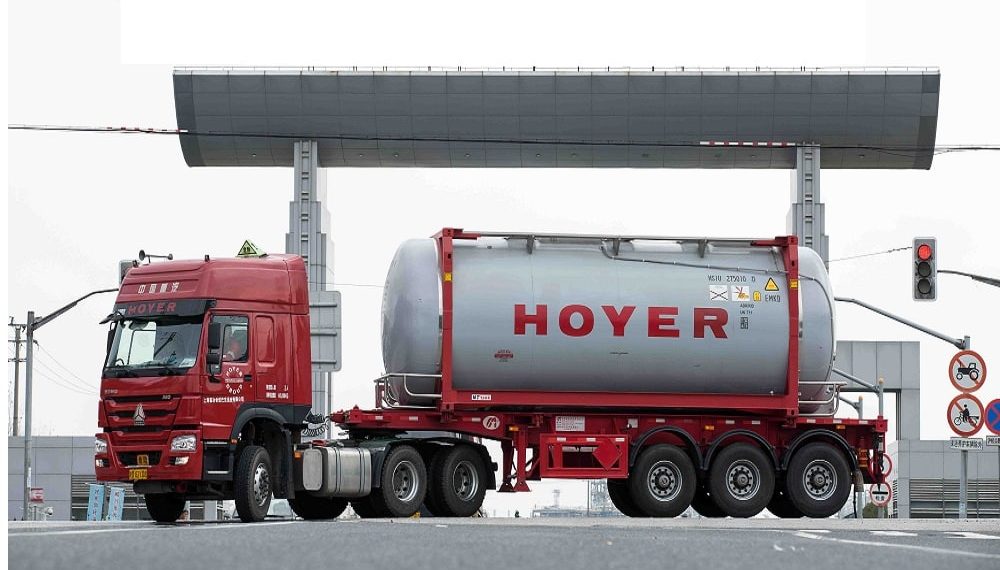The emissions reducing restricted driving zones some cities have introduced for diesel vehicles of certain emissions classes have caused sustained discussion in the media, in political circles, and across society. These restricted driving zones have been introduced in certain places in response to the EU’s desire to reduce vehicle emissions that are exceeding safe levels in some major conurbations such as European metropolises like Berlin, London, Paris, Rome and Madrid.
The driving ban imposed affects all vehicles powered by diesel engines up to and including emissions class Euro 5. The international logistics provider HOYER will avoid any restrictions as 84 percent of the trucks operated by the company will be powered by emissions class Euro 6 engines by the end of 2018.
More than 96 percent of the trucks of HOYER in Germany already have low-emissions engines of the class Euro 6. “We have been working on converting our entire fleet to vehicles powered by Euro-6 engines for quite a while, which is proving to be a good decision. We increased the number of trucks powered by Euro-6 engines by 58 percent as compared to last year 2017,” explains Mark Binns, Managing Director of Petrolog and Group SHEQ at HOYER. The logistics company is also testing more environmental friendly alternative fuels, such as LNG (Liquefied Natural Gas).
The commitment to a modern fleet is not a new development. The HOYER Group’s SHEQ management system (Safety, Health, Environment, Quality) implemented 20 years ago ensures continuous controlling and optimisation of security, industrial safety, environmental performance and the quality of all operations. Legal requirements are always complied with but often exceeded. One of the central environmental parameters for HOYER is the minimisation of the CO2 footprint. The company has targeted a 25 per cent reduction of CO₂ emissions per tonne-kilometre by 2020 and has already made good progress. Efforts to improve economical driving behaviour, more efficient route planning, minimisation of empty kilometres and increase the use of intermodal operations when delivering goods over long distances are all supporting achieving this ambitious target.
HOYER is one of the world’s leading logistics companies delivering essential commodities that provide continuity to the lives of millions of people. HOYER’s future-oriented approach continues to set new standards of operational and environmental performance.
About the HOYER Group
HOYER, a traditional independent family business, has been one of the world’s leading bulk logistics providers since 1946. As a specialist, it has extensive know-how in the provision of complex services, and has special customer proximity. It develops and implements comprehensive solutions in European and worldwide bulk logistics, particularly in the chemical, food, gas and petroleum industries. For this, about 6,500 employees in more than 115 countries support clients with well-thought-out logistics solutions to make them even more successful in their respective markets. HOYER owns around 2,400 trucks, 2,700 road tankers, 43,100 IBCs, 39,200 tank containers and numerous logistics installations with depots, cleaning plants and workshops.


































